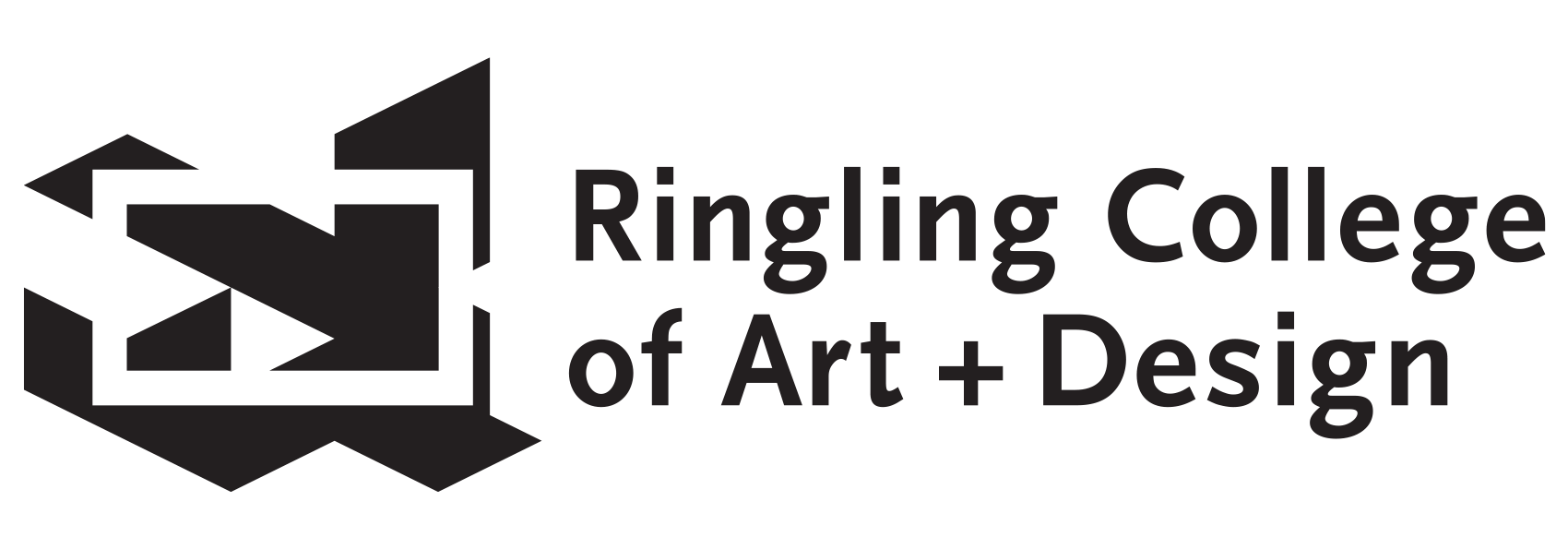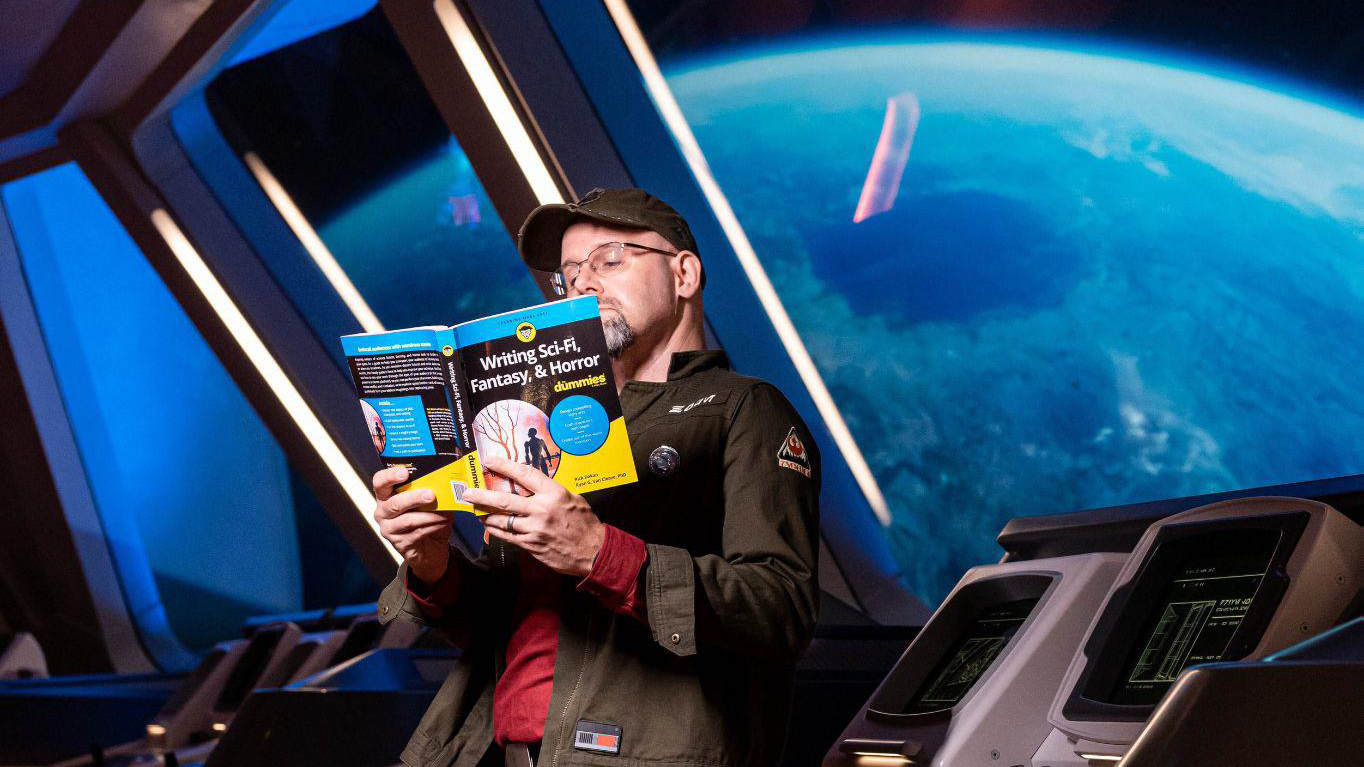As interests and concerns about Artificial Intelligence flared world-wide this year, Ringling College of Art and Design rose to the challenge—creating an AI Task Force to research the scope of possibilities and potential challenges of using, working with, and learning from the artificial intelligence machines and software with a particular focus on artists, designers, and writers. Faculty and staff from the College’s Creative Writing and Entertainment Design programs to the Library and Career Services all weighed in on how this new technology could affect their fields and departments. At the helm of the Task Force, Creative Writing faculty Rick Dakan guides the large project in his appointment as chair.
Since accepting the task, Dakan has given talks at The Teaching and Learning with AI Conference at University of Central Florida this past July, and this month he will be presenting with Illustration faculty member Stewart Leith on the topic at the National Association of Schools of Art and Design’s annual meeting.
On the theme of their talk, Leith explains, “AI generated images could fundamentally change the art world and community and it’s important that we understand how it works and what it’s capable of creating.” He said, “We’re seeing a radical shift in the way digital content is being created. The rate of AI-generated image advancement is incredible and it’s not showing signs of slowing down.”
The charge to the Task Force were laid out in two phases. Phase one took place over the summer break and was primarily focused on collecting information. Its members researched the potential impact on the institution, consulted experts, and developed AI integration recommendations. They sent a campus survey on individual knowledge, interest, and concerns about AI.
In phase two, the Task Force began implementing their findings and proposals into programming and curricula. The programming began with a guest speaker series that kicked-off last month with the talk, Making Art as a Human in the AI Apocalypse???, by character and production designer and alum Lindsey Olivares ’09, Computer Animation. The group is providing training and resources for faculty and students and establishing partnerships with AI research centers and technology companies. Two classes will begin in the Spring 2024 Semester to help guide students through the new terrain: a 100-level Fundamentals of AI open elective class, taught by Dakan, and a 300-level AI Techniques and Processes for Art, taught by Leith.
At the Teaching and Learning with AI conference, Dakan gave a presentation about the class that he is teaching, and found comradery in the likeminded community. “It was fascinating to meet and exchange ideas about AI with faculty from a wide variety of colleges and universities. Everyone is still trying to figure AI out. What does it mean for our students, our courses, our pedagogy? Ringling College has taken the initiative to answer these questions for our institution, and I’m proud to be part of that process,” he shared. “At NASAD, Stewart and I will have a chance to share what we’re doing at Ringling College and learn how other art schools are handling the existential challenges that AI is creating for the world of art and design. It’s a vital conversation, and Ringling is meeting the challenge head on.”
Motion Design faculty David Broduer presented on the topic at the Artificial Conference in August this year. His presentation covered his experience with AI in his personal digital arts practice and how he is tackling AI in the classroom. He also spoke about AI business, ethics, and law, and building a future with AI.
Broduer takes a direct and all embracing approach to AI as an educator: “My approach to AI and my students is to embrace it, learn it, and become experts in it. It is here to stay and we have to learn how to harness its power, pivot, and grow along with it. Fighting against it will only slowly make you obsolete.”
The next talk in Ringling College’s AI series is November 2, at 7 pm in the Morganroth Auditorium as the College welcomes Val Jones from Storyfile. Storyfile is a company working with AI in video, making software to make AI sound more conversational.



